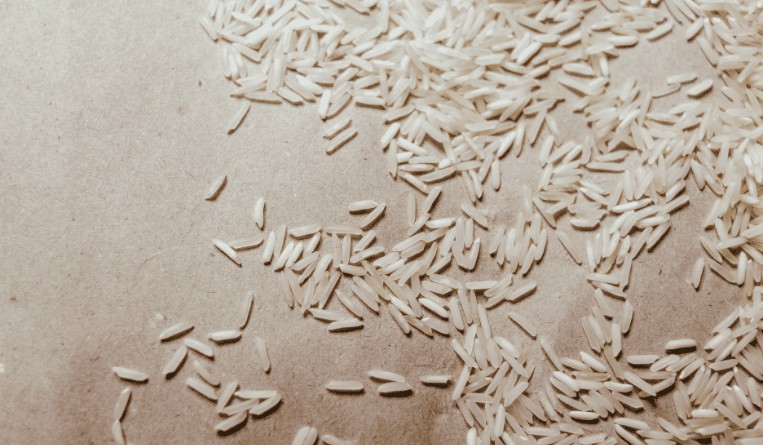Vietnam makes move against trademark applications for local rice varieties in Australia, US
09 June 2021

On April 22, 2021, Australian firm T&L Global Foods Supply submitted two applications for trademark registrations under Class 30 for ST24 and ST25 “rice” and “best rice of the world” products.
However, ST24 and ST25 were developed in Vietnam by a team of Vietnamese scientists led by engineer Ho Quang Cua. To prove this and avoid a legal dispute, the Vietnam Trade Office in Australia sent documents and photos to IP Australia.
“It is important to note that named ST24 and ST25 were successfully researched and produced by Mr. Ho Quang Cua and a team of Vietnamese scientists, have been protected as plant varieties in Vietnam and have been well-recognized,” said Yen Vu, executive and country manager of Rouse in Ho Chi Minh City. “Mr. Ho Quang Cua has been commercializing ST24 and ST25 to farmers nationwide to produce rice for the domestic market. These rice products are distributed widely and much loved by consumers in the country.”
According to Vu, the documents submitted to IP Australia may have included the following: plant variety protection certificates granted by the Vietnamese authority, certificates indicating that the rice products bagged 1st prize in World's Best Rice Contest 2019 held in the Philippines and 2nd prize in the contest’s 2020 edition held in the United States and evidence that ST24 and ST25 have been widely-used and recognized by consumers over a continuous period of time.
The Vietnam Trade Office has also gotten in touch with T&L Global to inform them about the matter and the latter promised to check with its brand department. At the same time, the Office has spoken with Australian lawyers about their next move.
T&L Global Foods Supply is not the only company to file an application for trademark registration over the ST25 rice variety. Five other companies, all in the US, have done the same with the application of one, I&T Enterprises Inc., having passed the first stage as of this writing.
Vietnam’s government took similar steps over the matter in the US as it did in Australia. In addition, right holder Ho Quang Tri private enterprise filed a trademark application at the USPTO for “Rice of Mr Cua” (Gao Ong Cua) combination mark for ST25.
Vu said it is unlikely these applications will be accepted for trademark protection.
“ST24 and ST25 are actually names of rice varieties that have been protected in Vietnam in 2018 and 2020 respectively. And so rice products bearing ST25 and ST24 names are actually distributed nationwide and because they are product names and they are generic, they can’t be protected as trademarks even for the owner of these rice varieties. Most of the countries have effective trademark provisions that exclude the protection of product names and generic names like ST24 and ST25 as trademarks,” Vu explained.
However, she added that incidents where unauthorized individuals from foreign countries preemptively applied for trademark protection of Vietnamese brands are common. Buon Me Thuot coffee and coconut candy Ben Tre brand, registered as trademarks in China, are some examples.
“In these cases, Vietnamese right holders spent years with concerted efforts to claim back the trademark rights,” Vu said, adding that legal actions are time-consuming and costly.”
“On a national scale, bad-faith registration in foreign countries also create negative socio-economic impacts. This prevents legitimate owners to be able to use and register their own trademarks and cause great difficulties in distributing their products to foreign markets,” Vu added.
“As to rice, it is apparently Vietnam’s prominent agricultural product,” she said, “Therefore, trademark protection for this product in foreign jurisdictions is high on the agenda.”
To address these issues, Vu said right holders should be more active in filing trademark applications – and they should act fast – not just in Vietnam but also in countries which they are targeting for their products to penetrate. They should proactively monitor these markets for potential bad-faith applications.
She believes government support to local exporters with sparse resources and SMEs should also be strengthened.
“I think it’s important to raise their awareness about the importance of intangible assets and how to make use of toolkits, that have been invaluable not just in Vietnam but also in other countries, that they can refer to with their own purpose of commercializing their products,” she said. “Indeed, the government in recent years has strived to provide sufficient guidelines for the Vietnamese traders on trademark basics and formalities.”
As it is, Vietnam already has a good legal framework for IP protection which continues to be developed with the signing of recent deals like the CPTPP, EVFTA and RCEP.
“ST25 is, I think, a lesson for the SME enterprise to think globally and to think forward as Vietnam further integrates into the global and regional economies,” said Vu.
“Furthermore, it is proposed that trade officials should be responsible for reviewing and promptly issuing warnings of potential disputes or misappropriation of IP rights of Vietnamese enterprises in foreign markets,” she added.
T&L Global’s applications are now undergoing examination. After the applications are advertised, Ho Quang Tri may begin taking steps for its opposition.
Espie Angelica A. de Leon






